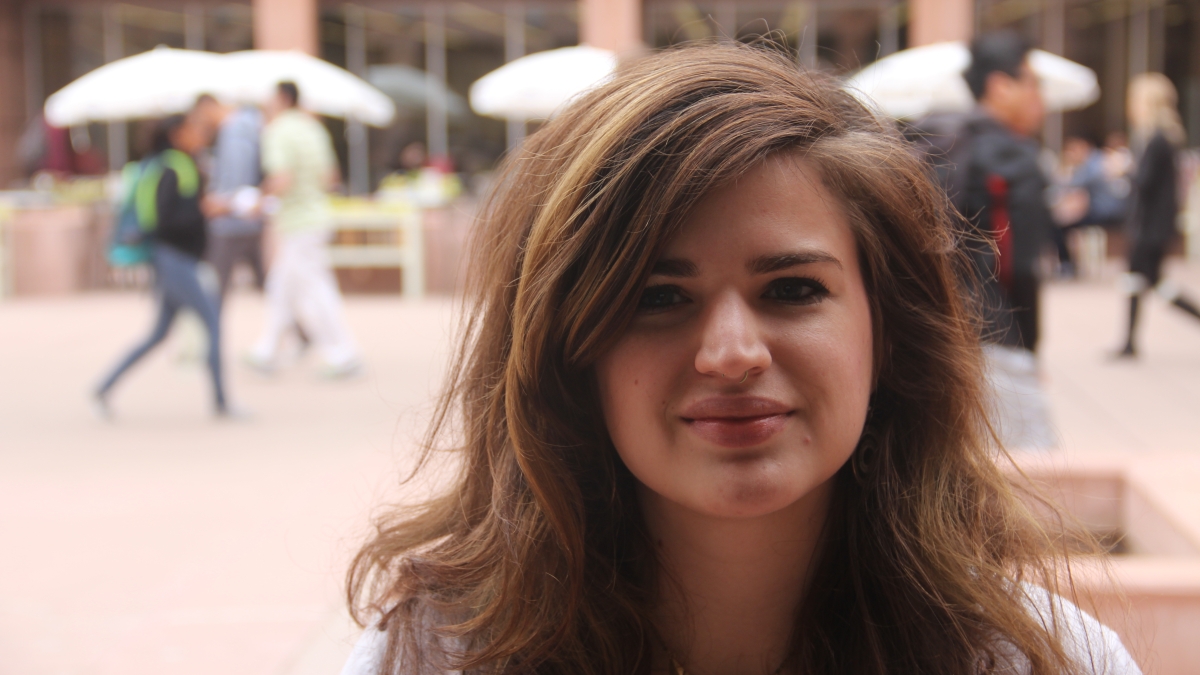'Literary sleuth' discovers excitement in research endeavors

Mollie Connelly experienced history, adventure and excitement while pursuing her master’s degree at Arizona State University, spending a majority of her time in the library.
Connelly, who will graduate with a master's in English Dec. 15 at Wells Fargo Arena, said her ultimate goal is to become a librarian, a profession she says offers plenty of stimulation and action.
As part of her applied project, the 25-year-old spent the past semester developing, creating and completing the “Special Collections Manuscript Letters and Ephemera of Artists and Authors (1650-1921),” a collection to be housed in ASU’s Digital Repository. This collection consists of 62 rare manuscripts recently unearthed in Hayden Library’s Special Collections department.
“I’ve been calling it ‘literary sleuthing’ instead of research because each manuscript is a piece of history, and it was my job to authenticate when they were written, why they were written and try and give them context,” Connelly said.
The collection adds to the correspondence heritage of notable authors, artists and public figures, including Mark Twain, William Wordsworth, H.G. Wells, Booker T. Washington, Claude Monet and others. Providing original transcriptions using standard editorial conventions and metadata, the project sets out to make previously unpublished manuscripts newly accessible to scholars and students. Connelly said reviewing the materials and putting them in their proper context fed her old soul.
“To an archivist, written letters can tell a lot about a person and give clues as to what they were doing in that point in time in their lives,” Connelly said. “From a cultural standpoint, letters are invaluable. There’s something about letters that are romantic and more of a work of art than an email.”
Connelly spent the other half of 2014 as a graduate research assistant to author Jewell Parker Rhodes at the Virginia Piper Center for Creative Writing on ASU’s Tempe campus. Connelly researched on various topics for Rhodes’ children’s books, maintained her email database, created PowerPoint presentations and spreadsheets to aid in her keynote speeches, and reviewed and edited Rhodes’ books. In return, Rhodes will acknowledge Connelly in her next book.
"Mollie was a wonderful researcher for my middle grade novels, 'Sugar' and the forthcoming 'Bayou Magic.' She could be relied upon to provide accurate details whether it was information about a shrimp boat or mythical mermaids. She also served as a "first reader" - providing invaluable critique and support," Rhodes said. "Most significantly, she researched future novel ideas and has given me a foundation for future success. Best of all, my success is shared with Mollie. We were partners."
Connelly says the public perception of the book industry and the library system as slowing down or being dead is incorrect.
“Books are only a small part of what libraries deal with. Public libraries now deal with social services, community outreach, career help and digital services,” Connelly said. “It’s actually a growing industry. There’s always going to be data and information that needs to be managed and allocated. More content is being created these days, which means more work for librarians than ever before.”

